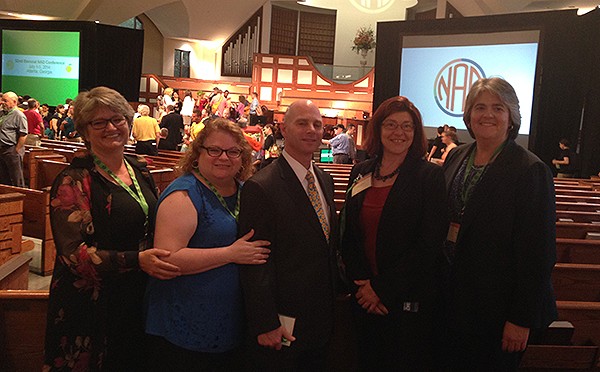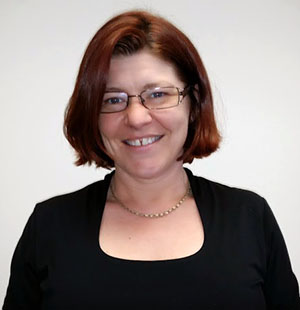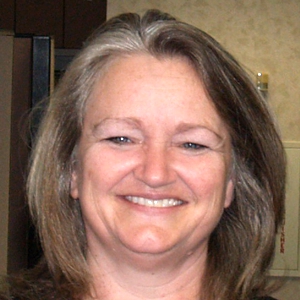 DBHDD Deaf Services co-sponsored the Georgia Association for the Deaf Conference (GAD) held June 17 – 21 at the Jekyll Island Convention Center. The conference provided a forum where leaders exchanged valuable information about the promotion of the rights of Deaf people.
DBHDD Deaf Services co-sponsored the Georgia Association for the Deaf Conference (GAD) held June 17 – 21 at the Jekyll Island Convention Center. The conference provided a forum where leaders exchanged valuable information about the promotion of the rights of Deaf people.
This venue provided the first opportunity for the Deaf Services of DBHDD to introduce its new branding efforts to spread the vision of communication equity in the delivery of services. Deaf Services rolled out a new theme: Access, Inclusion, and Respect, and incorporated it within the booth concept and video. These three aspects communicate the commitment to change the course of communication service delivery.
“The Deaf Services team understands and appreciates the value of access; for without it, individuals cannot be heard. Our team focus remains advocacy for Georgia’s Deaf and Hard of Hearing citizens, ensuring that they have a voice in the process of service delivery,” said Dr. Candice Tate, Director of Deaf Services.
Dr. Tate hosted an open forum, encouraging the Deaf community to enter into a dialogue about their concerns and perception of the state of mental health and service delivery in Georgia’s Deaf community. Some of the issues discussed included group home administration and whether a dedicated Deaf group home could exist. Additional questions were poised concerning Deaf Services funding. In addition, quality of care questions and concerns on behalf of immediate family members were raised about how to qualify and obtain services for their respective family members.
DBHDD Deaf Services sought to deliver the educational message by modeling respect for each individual at the conference by actively engaging each participant, answering their questions, and providing information face to face. Kelly Stockdale, a Deaf Operations Analyst for DBHDD, said, “Being able to model these concepts of access, inclusion and respect in an environment of open dialogue, where we are listening to others, allows us to gather the information that will support removing barriers, and positions the team to define, implement, and measure the effectiveness of our services.”
Other topics discussed during the conference included the use of video remote interpreting (VRI) in hospitals, the challenges of utilizing VRI and the impact of replacing live interpreters. The DBHDD Deaf Services focus on inclusion and respect correlated with Chris Wagner’s discussion of oppression, both within and external to the Deaf community. Additional topics included a presentation by “HEARD” (Helping Educate to Advance the Rights of the Deaf) concerning the advocacy of rights for Deaf individuals held or incarcerated within the local, county, and state legal systems.
The GAD Conference continues to provide a forum where key information within and about the Deaf and Hard of Hearing communities can be shared. Partners and stakeholders include a cross-section of individuals with a vested interest in the Deaf community. This group remains dedicated to the protection and promotion of the rights of the Deaf through advocacy.

 This week, DBHDD welcomes Candice M. Tate, Ph.D., as director of the Office of Deaf Services. Dr. Tate is a deaf psychologist fluent in American Sign Language (ASL). She brings over 15 years of experience in therapeutic and assessment services to both deaf and hearing populations. Her work on
This week, DBHDD welcomes Candice M. Tate, Ph.D., as director of the Office of Deaf Services. Dr. Tate is a deaf psychologist fluent in American Sign Language (ASL). She brings over 15 years of experience in therapeutic and assessment services to both deaf and hearing populations. Her work on  DBHDD’s
DBHDD’s